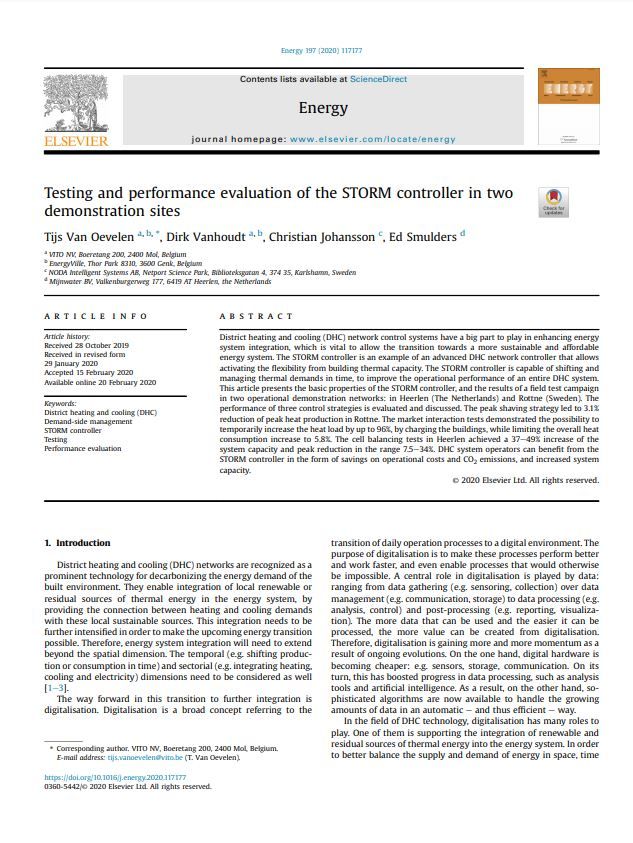[Publication] Testing and performance evaluation of the STORM controller in two demonstration sites
Create a subpage- Alice Dupuy
- /
- the 23-04-2020
- / 1002
After completing the STORM project, Mijnwater contributed to the publication of the article “Testing and performance evaluation of the STORM controller…” in Elsevier’s Energy magazine.

District heating and cooling (DHC) network control systems have a big part to play in enhancing energy system integration, which is vital to allow the transition towards a more sustainable and affordable energy system. The STORM controller is an example of an advanced DHC network controller that allows activating the flexibility from building thermal capacity. The STORM controller is capable of shifting and managing thermal demands in time, to improve the operational performance of an entire DHC system. This article presents the basic properties of the STORM controller, and the results of a field test campaign in two operational demonstration networks: in Heerlen (The Netherlands) and Rottne (Sweden). The performance of three control strategies is evaluated and discussed. The peak shaving strategy led to 3.1% reduction of peak heat production in Rottne. The market interaction tests demonstrated the possibility to temporarily increase the heat load by up to 96%, by charging the buildings, while limiting the overall heat consumption increase to 5.8%. The cell balancing tests in Heerlen achieved a 37e49% increase of the system capacity and peak reduction in the range 7.5e34%. DHC system operators can benefit from the STORM controller in the form of savings on operational costs and CO2 emissions, and increased system capacity.